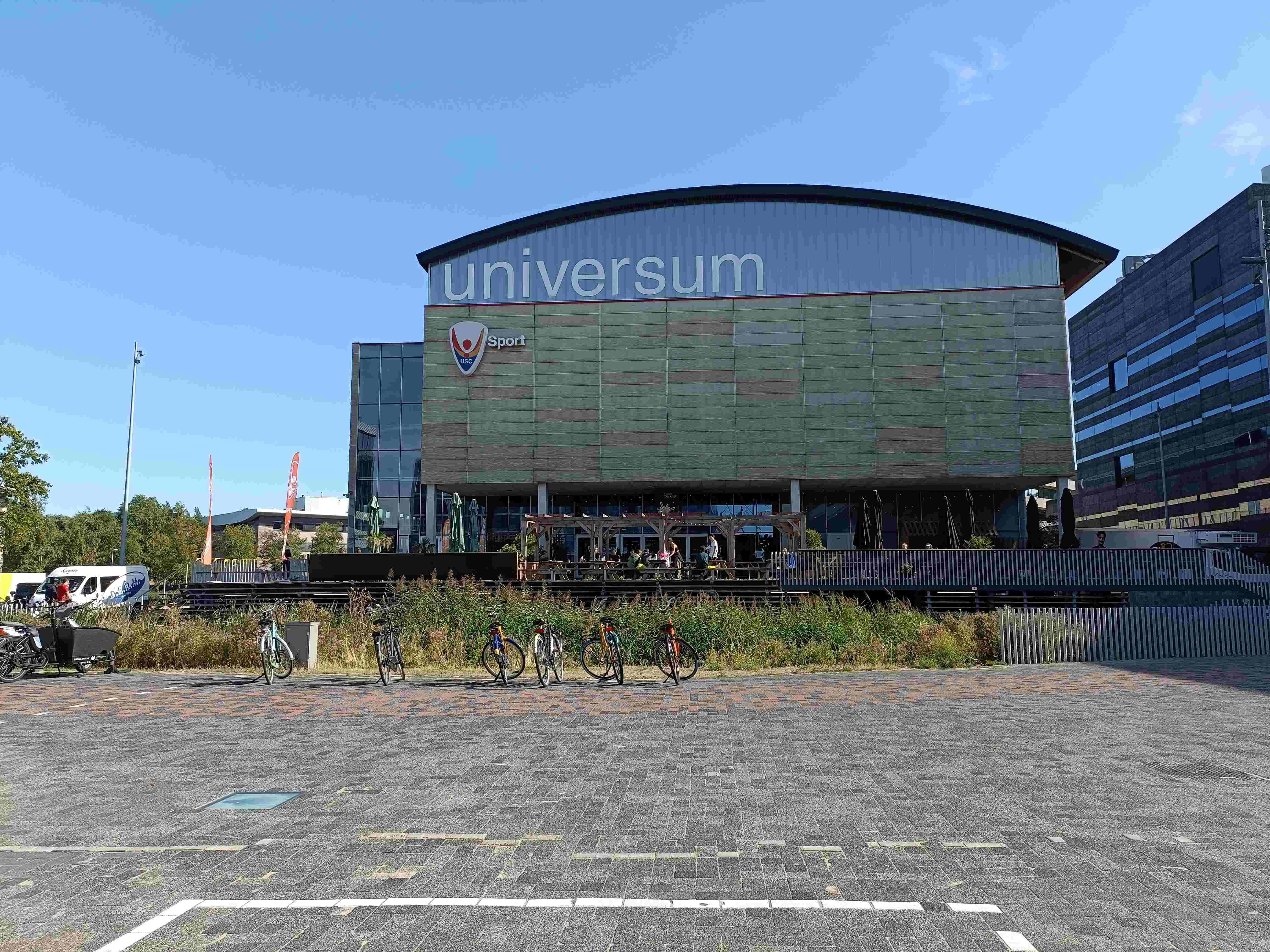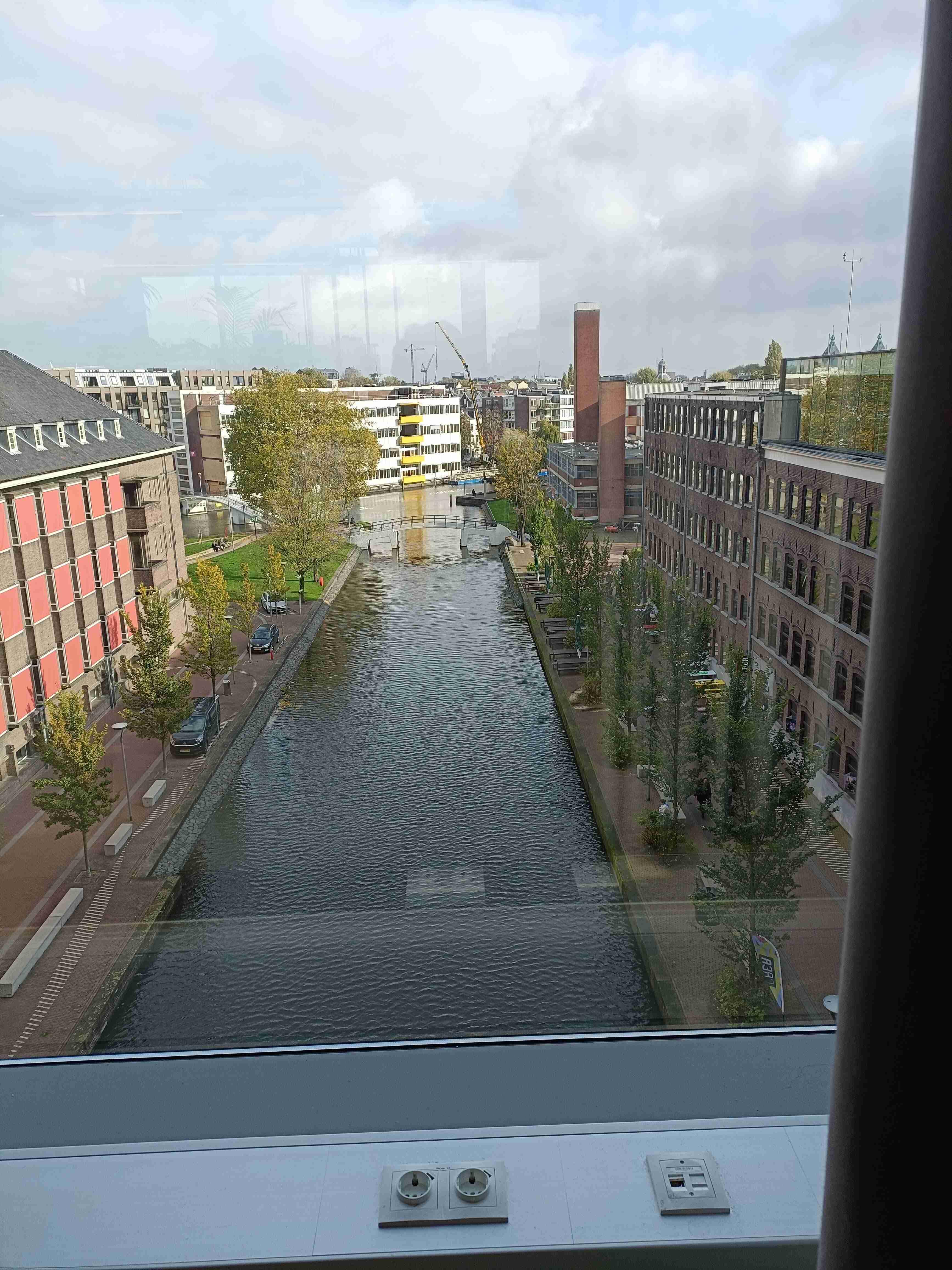What Students Say
Likes
- The university gave me freedom to choose my courses (apart from the mandatory ones) wherein I had the opportunity to explore variety of streams. I chose a course with application of Data in the business world. This was very interesting and life-changing for me, as it gave a glimpse from the applicative point of view.
- The courses are quite pragmatic, teaching concepts used in real world and with variety of projects. Some projects are usually introduced by blooming startups in the Netherlands, and established firms, which not only helped me with practical knowledge but also for networking.
- The university also has tie-ups with many research groups to satisfy your research needs, if you want to have a gist for PhD. It helped me to secure my Thesis projects with one of the research groups.
Dislikes
- The course is fast-paced, you always need to be ahead with your studies to keep on the track. It would be better to have a foundational knowledge before starting the studies.
- Sometimes you feel you are left out, as the course is not theoretical. You have to work hard to keep yourself familiar with the topics you need to study about.
- The university is good, but it doesn't help you with the job hunt. It do provide some networking opportunity, but securing a job is a different hustle there. From my experience, applying on your own only helps.
Course Curriculum
- It was majorly practical, with a focus on lots of assignments and projects.
- Positive aspect is that you learn through projects; you are used to tools and techniques that are a vital part of real-world applications.
- Negative aspect is that you need to devote yourself to understanding the basics of those tools so as to have a solid foundation.
- The schedule varies depending on your courses and electives. Usually you have 2 lecture classes and 1 tutorial/practical class for one course every week. A lecture class is two hours with a 15-minute break, while a tutorial class is for an hour.
- My course has around 200 students, but this number may vary for the electives. Around 10 Indian students were enrolled in my course.
Admission Experience
- I applied to 3 universities. University of Amsterdam, TU Munich and RWTH Aachen.
- I was Admitted to the University of Amsterdam but was rejected in the other two.
- I haven't received the true feedback but it can be due to the educational background, as I don't have adequate technical expertise and work experience.
- Due to a strong international influence and the courses being crisp, just perfect to sustain the skills required in the real-world setting.
- After having an IELTS SCORE, I applied to the desired course at the university website within the deadline. Next step is to wait for the outcome. After receiving the results, the university has asked me to confirm the result and later on helped me with the housing and visa application process.
- Usually they focus on your educational background and your work experience, with a good score in IELTS (MIN. 7 band) and GRE (300+ Score). This may vary based on the course requirements. Overall, the process was smooth, and they are always available via email.
- I had applied to Fall intake (September). As all the courses are available in that intake compared to other intakes, I chose that intake.
- The timeline for me is around 3 months from the time of applying to receiving the verdict of the application. However, it depends on application to application based on the waiting list. The deadline for application was 31st January, and I applied mid-January to the university. I received the acceptance in early March, and I confirmed to them in March.
Faculty
- The professors usually drive a class of 200 students, while a Teaching assistant (TA) takes care of 25-30 students. High TA-student ratio eases the doubt-clearing session.
- The course content is pretty diverse and covers the major portion of the curriculum. But in order to secure a job, you need to study some extra concepts on your own. They can help build a foundation of concepts, but you need to understand their usage in real-world problems.
- The faculty members assist students in securing the job through their network. My teacher also introduced me to one of the projects their research group is working on.
Campus Life
- My university has 4 campuses in the Netherlands, covering the major location of Amsterdam.
- Almost all the facilities, including but not limited to, the library, sports arena, gym, recreational area, dance studio, art studio, and medical care are available on each and every campus.
- The festivals, clubs and other events are organised for undergraduate students. Since I am a postgraduate student, I don't know about those students.
Part Time Jobs
- For my class of around 200 students, around 30 students were TA. However, for RA and DA, the requirement is to have an ongoing PhD.
- For TA, the pay range is around 700-800 EUR, but it depends on the course you are working for. There are no other on-campus jobs available for students.
- The maximum number of hours for Indians working abroad part-time is 20 hours weekly.
- It is difficult to get an on-campus job, but it again depends on the course you are targeting.
- The minimum hourly wage was 12 EUR, but some companies pay you more. It is not difficult to secure a part-time job, provided you have fluent English. The process is quite straightforward: to look for jobs online, apply, prepare for the interview and wait for the outcome. In a job hunting scenario, networking helps; if you know someone already working in the company, it will add an added advantage to your profile.
Placement
- I cannot comment on the exact percentage of people who secured employment within 6 months. But most of the people were able to secure employment in one way or another.
- The average salary would be around 2200–3000 EUR monthly in the Netherlands.
- The online job portal is the major source. The university introduces some companies and their vacancies in the career fair, which can support future employment. Lastly, networking is the key in corporate. There is no placement drive in European universities.
Accommodation
- I opted for a Student Accommodation, and is off-campus. In the Netherlands, there is no ON-Campus accommodation.
- I opted for housing accommodations during my application process. So, when I received my acceptance, the university introduced me to a third-party housing provider, wherein I got my room. The process was simple, but the university asked for one-time overhead fees.
- I pay around 500 EUR for a room and bathroom. I share the kitchen with around 5 co-tenants.
- For me, the process was smooth in securing a house there.
- Yes, please go for university-guided student accommodations, as they are very clean and comparatively cheap.
- It is a 30-40 minute ride through public transport. There is no specific area for Indian students, as the housing is allocated randomly based on their selected preference.
Exams
- IELTS/TOEFL is mandatory for European universities to judge your level of understanding of the English language. The GRE is not mandatory for every course in the University of Amsterdam; therefore, check the course prerequisites before giving the GRE exam. I have given the GRE, as it was required for my course.
- Statement of purpose, 2-3 LORs, and CV are mandatory documents for the application to University of Amsterdam.
Scholarship
- I haven't received any scholarships.
- My batchmate received a scholarship with 50% fee waiver, based on the academic achievements and participation in the research work.
- Usually 20% of students receive scholarships in Master in Information Studies each year, and the amount varies based on profile and academic proficiency. The referrals don't work here.




